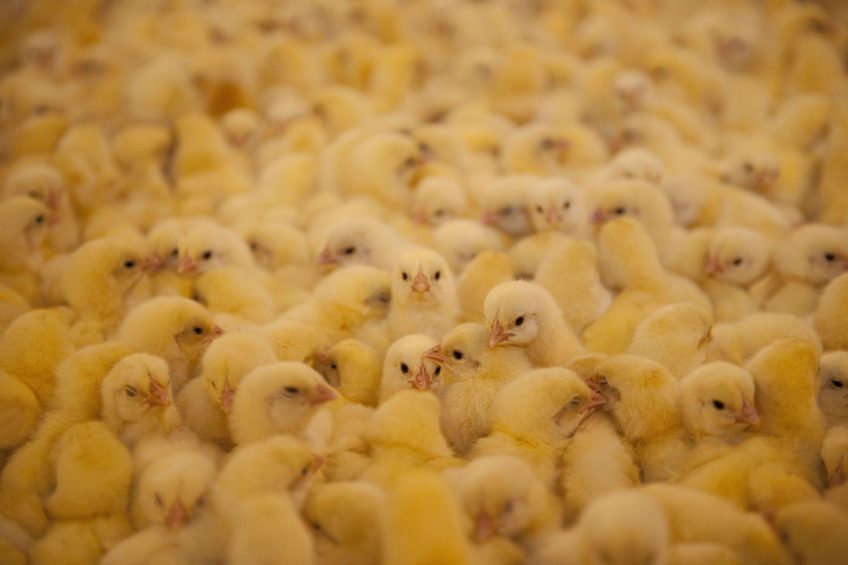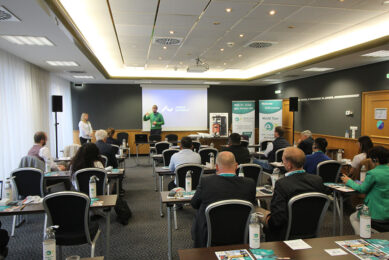EuroTier innovation awards: poultry products win silver

Although EuroTier was cancelled in November to be held virtually in February 2021, its innovation awards were announced at a virtual preview event.
In total, show organisers DLG presented 8 awards, including 1 gold medal and 7 silver medals from a total entry of 80 innovations. 2 of the silver medals were presented to poultry products, including automatic egg sexing technology and an egg sorting unit.
Seleggt Acus sampling system
Egg-laying chicken genotypes are considered unsuitable for producing poultry meat, due to lower product quality and cost effectiveness. For this reason the male chicks of these breeds are generally not reared. However, as the culling of day-old male chicks has become a societal and political issue, with a ban on this practice being considered, the industry is seeking alternatives to this process.
One such alternative is in-ovo sex determination with hormone analysis on the 8th or 9th day of incubation, which is currently the most extensively developed and commercially useable method. The Seleggt Acus sampling system, developed by Respeggt GmbH for this purpose, is already in practical use. Sampling the test fluid from the allantois using a needle, this system is only partially automated. The risk of injuring the allantoic membrane exists, which can lead to a reduction in the hatching rate. The hourly capacity of a single sampling unit for this system is around 600 eggs.
 France to ban culling of male chicks
France to ban culling of male chicks
The French government has said it will ban the culling of male chicks by the end of 2021. It is part of a broader package of animal welfare reforms that will also see the end of piglet castration without anaesthesia.
The innovative Seleggt Circulus system is a significant leap forward compared to the predecessor system. Operating fully automatically, the allantoic fluid samples are generated in a non-invasive way. Cleaning the sampling needles is therefore no longer necessary and the sampling time has been reduced to just 1 second per egg. In 3-shift operation with 20 hours of operation per day, 1 Seleggt Circulus sampling unit therefore has a weekly capacity of 360,000 hatching eggs, corresponding to 150,000 to 180,000 laying chicks, a significant increase in performance compared to its preceding system.
Nectra SAS egg refilling system
It’s an all too common factor on egg farms and hatcheries where manually sorting eggs on trays takes up a lot of time but technology is on hand to ease that pain. The hatching eggs from broiler parent livestock farms are delivered to central hatcheries, where they are sorted according to quality and weight before being placed into the incubator. In addition, eggs that are not positioned with the blunt end pointing upwards in the tray have to be turned. This leads to a high number of incompletely filled trays that have to be manually refilled.

Often, the eggs are also transported on conveyors where they can come into direct contact with one another, possibly resulting in damaged shells.
In the new system presented by Nectra SAS, the eggs are transferred from the delivery trays to egg moving cups that move freely on a transport conveyor. Here, the eggs can be automatically and individually sorted according to quality and weight and can also be turned if they are positioned incorrectly. The freely moving egg cups are backed up for transfer to the hatching trays, unoccupied egg cups are automatically removed and the remaining, filled egg cups are then transferred automatically to the hatching trays so that no gaps occur.
The system significantly reduces the likelihood of damaging the egg shells and automates the hatching tray filling process. This considerably lightens the workload and leads to an improvement in hatching rates in the broiler chick hatcheries.













